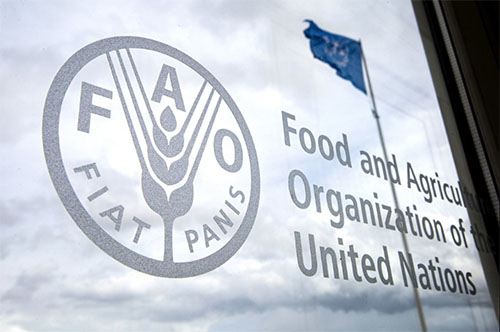The Food and Agriculture Organization (FAO) of the United Nations has assured Prime Minister Ranil Wickremesinghe that it will assist Sri Lanka in overcoming a possible food crisis.
Following a meeting between Prime Minister Ranil Wickremesinghe and the United Nations, the Food and Agriculture Organization of the United Nations has assured that it will seek international assistance to address the food crisis the country may face in future.
“Following discussions I held with the United Nations, the FAO will help Sri Lanka make an appeal for international assistance to overcome the growing food shortages in the country,” the Premier said on social media.
“One of our immediate priorities is to ensure that all citizens are provided with three meals a day,” the Prime Minister said.
Australia will provide $2.5 million to boost food security in Sri Lanka through the World Food Programme (WFP) and the Food and Agriculture Organization (FAO).
The COVID-19 pandemic has affected food security globally, impacting food supply chains and contributing to escalating food prices.
This $2.5 million in targeted development assistance will support child nutrition, strengthen productivity for smallholder farmers and improve livelihoods in rural areas.
The WFP and FAO will work to improve agricultural practices, strengthen market linkages and provide social protection to vulnerable communities, particularly households that are female-headed; with children under five; or that have pregnant or nursing mothers.
WFP will also address the immediate nutritional needs of school going children though the provision of meals at school. FAO will support a school garden program.
Australia will continue to work closely with regional partners to support health security and economic resilience in the Indo-Pacific.
The European Union (EU) announced the signing of three grants worth EUR 35.75 million (LKR 8.26 billion) which will support Sri Lanka’s justice sector, help improve food safety, and strengthen efforts to mitigate climate change.
EUR 10 million (approx. LKR 2.31 billion) will help improve food safety, quality, and promote organic agriculture.
The components, to be implemented by FAO and UNIDO, will strengthen the competitiveness of the agriculture sector through the adoption of good agricultural and hygienic practices, an updated risk-based food control system, and increased consumer awareness
.Implementing partner GIZ (Germany) will also support the local organic agriculture market, including small and medium-sized businesses to produce at higher volumes and better quality.
The standards required to access major EU markets will be promoted through the National Organic Control Union and theExport Development Board.
